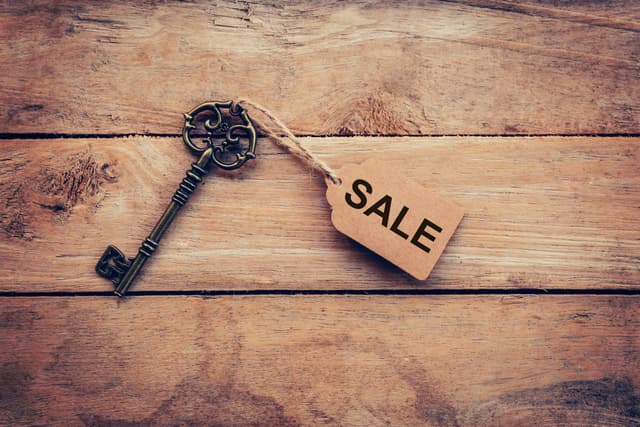Banks and Repossessed Items from the Wealthy: How It All Works

When we think about banks, the first things that come to mind are savings accounts, loans, and mortgages. However, banks also deal with another aspect of finance that's lesser-known to the general public—repossessed items from the wealthy. These repossessed items range from luxury cars to high-end real estate, and they come into the banks' possession when wealthy individuals default on their loans. In this article, we'll dive into how banks manage these assets, why they want to unload them, and what it means for you.
Table of Contents
- Introduction
- What Are Repossessed Items?
- Why Do Banks Repossess Items?
- Types of Repossessed Items from the Wealthy
- The Process of Repossession
- How Banks Manage Repossessed Assets
- Why Banks Want to Unload Repossessed Items
- How to Find Repossessed Items for Sale
- Pros and Cons of Buying Repossessed Items
- What Happens to Unsold Repossessed Items?
- The Impact on the Wealthy
- Legal and Ethical Considerations
- Tips for Buying Repossessed Items
- Conclusion
- FAQs
Introduction
Repossessed items are assets that have been taken back by banks or financial institutions from individuals who have defaulted on their loans. When someone borrows money to purchase an asset, like a car or a house, and fails to repay the loan, the bank has the right to seize that asset as collateral.
What Are Repossessed Items?
Repossessed items are assets that have been taken back by banks or financial institutions from individuals who have defaulted on their loans. When someone borrows money to purchase an asset, like a car or a house, and fails to repay the loan, the bank has the right to seize that asset as collateral.
Why Do Banks Repossess Items?
Banks repossess items to recover the money they lent out. When a borrower defaults on a loan, the bank incurs a loss. By repossessing and selling the asset, banks aim to recoup some or all of the outstanding loan amount. This process is crucial for maintaining their financial stability.
Types of Repossessed Items from the Wealthy
The wealthy often have high-value assets that can be repossessed. These include:
- Luxury Cars: High-end brands like Ferrari, Lamborghini, and Rolls-Royce.
- Real Estate: Mansions, vacation homes, and investment properties.
- Yachts and Private Jets: Expensive modes of transport.
- Art and Antiques: Valuable collections and rare items.
The Process of Repossession
The repossession process typically follows these steps:
- Default: The borrower fails to make loan payments.
- Notice: The bank sends a notice of default to the borrower.
- Seizure: The bank seizes the asset.
- Sale: The bank sells the asset to recover the loan amount.
This process can vary based on the type of asset and the terms of the loan agreement.
How Banks Manage Repossessed Assets
Once repossessed, banks manage these assets through several methods:
- Storage: The assets are stored securely until they are sold.
- Appraisal: The value of the asset is assessed.
- Auction: Many repossessed items are sold at auctions.
- Private Sale: Some high-value items are sold through private sales to interested buyers.
Why Banks Want to Unload Repossessed Items
Banks are not in the business of holding onto physical assets. They aim to convert these repossessed items back into cash as quickly as possible for several reasons:
- Reduce Storage Costs: Holding onto assets incurs storage and maintenance costs.
- Liquidity: Selling assets improves the bank's liquidity.
- Risk Management: Assets can depreciate over time, reducing their value.
How to Find Repossessed Items for Sale
If you're interested in buying repossessed items, here are some ways to find them:
- Bank Websites: Many banks list repossessed items for sale on their websites.
- Auction Houses: Look for auctions that specialize in repossessed assets.
- Government Listings: Some government agencies handle the sale of repossessed items.
- Online Marketplaces: Websites like eBay sometimes feature repossessed items.
Pros and Cons of Buying Repossessed Items
Pros:
- Lower Prices: Repossessed items are often sold below market value.
- High-Quality Items: Many items are high-end and well-maintained.
Cons:
- As-Is Condition: Items are usually sold as-is, without warranties.
- Potential Issues: There may be hidden problems with the items.
What Happens to Unsold Repossessed Items?
If repossessed items do not sell, banks may take further steps:
- Discount Sales: Items may be offered at reduced prices.
- Donations: Some items are donated to charities or non-profits.
- Write-Offs: In some cases, banks write off the value of the asset as a loss.
The Impact on the Wealthy
For wealthy individuals, the repossession of assets can have significant consequences:
- Financial Loss: The loss of valuable assets impacts their net worth.
- Reputation Damage: Repossession can harm their public image.
- Credit Score: Defaulting on loans negatively affects their credit rating.
Legal and Ethical Considerations
The repossession process is governed by legal and ethical guidelines to ensure fairness:
- Due Process: Borrowers must be given proper notice and opportunities to resolve the default.
- Fair Value: Banks must attempt to sell the assets at fair market value.
- Privacy: The privacy of the individuals involved must be respected.
Tips for Buying Repossessed Items
If you're considering buying repossessed items, keep these tips in mind:
- Do Your Research: Understand the market value of the item.
- Inspect the Item: If possible, inspect the item before purchasing.
- Check the History: Look for any past issues or damages.
- Set a Budget: Stick to a budget to avoid overspending.
Conclusion
Repossessed items from the wealthy offer a unique opportunity for buyers to acquire high-value assets at reduced prices. For banks, unloading these items is essential for maintaining their financial health. Whether you're looking for a luxury car, a piece of prime real estate, or a rare antique, understanding the repossession process and how to find these items can help you make informed decisions.
FAQs
1. What are repossessed items from the wealthy?
Repossessed items from the wealthy are high-value assets that banks seize when wealthy individuals default on their loans. These can include luxury cars, real estate, yachts, private jets, art, and antiques.
2. How do banks sell repossessed items?
Banks sell repossessed items through various methods, including auctions, private sales, online marketplaces, and sometimes direct listings on their websites. They aim to convert these assets into cash quickly.
3. Are repossessed items sold at a discount?
Yes, repossessed items are often sold at a discount compared to their market value. This is because banks aim to unload these assets quickly to recover the outstanding loan amounts.
4. What should I consider before buying a repossessed item?
Before buying a repossessed item, consider researching the market value, inspecting the item, checking its history for past issues, and setting a budget to avoid overspending. Keep in mind that repossessed items are typically sold as-is.
5. Can anyone buy repossessed items?
Yes, anyone can buy repossessed items, provided they have the means to do so. These items are usually available to the general public through auctions, bank listings, and online marketplaces.

